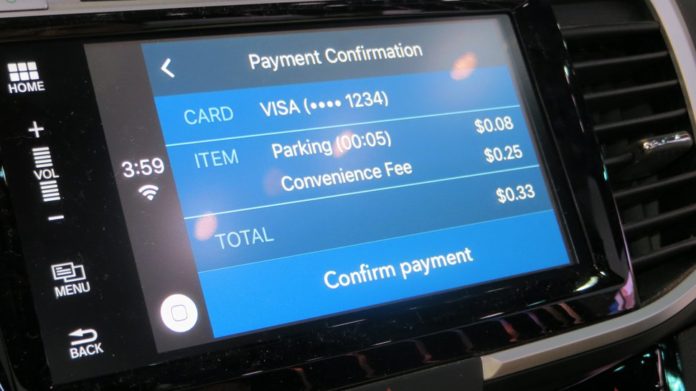
We’re changing our ideas about what paying for services means. While most of us are accustomed to paying by credit or debit cards, and we’ve readily embraced PayPal online, we’re more hesitant when it comes to paying for goods and services using our wireless devices…and this includes our vehicle.
A recent study based on interviews of 3,100 adults in the U.S., UK and Australia was conducted by Kantar for Transaction Network Services (TNS). Turns out, we’re still wary about using voice assistants to make payments. Just over a quarter (26 percent) of those surveyed with access to a voice assistant (think Siri or Alexa) have used it to make a payment. In the U.S., that figure is a little higher: 30 percent. The rest of the respondents reported that security concerns are keeping them from using voice assistants to initiate payments.
This will be an important hurdle for the marketplace to get around, particularly as more drivers get behind the wheel of connected cars. Most connected car platforms have payment apps that allow drivers to pay for gas or parking right from the vehicle’s dashboard. While drivers readily use traffic and infotainment apps on these connected car platforms, they’re a little slower to embrace payment capabilities.
The study results found that:
- Just under half (48 percent) of respondents to the survey said they would be eager to purchase a car with payment capabilities when available. In the U.S., the figure was 56 percent of respondents.
- More than half (57 percent) of those surveyed said if they owned a connected car, they would be willing to make a payment for fuel or parking through the car’s smart platform.
These figures are bound to rise as people becoming more accustomed to using mobile platforms such as Apple Pay or Google Pay Send (formerly Google Wallet) to pay at the point of sale. The payment through the car’s connected platform will eventually be seen as just an extended variation of payment-by-device.
This doesn’t mean, however, that consumers have put aside their worries about the security of their payment and other personal information.
“Our conclusion for the industry is that companies need to implement strong security protocols and communicate these measures to consumers to mitigate their concerns,” said Bill Versen, chief product officer with TNS.












